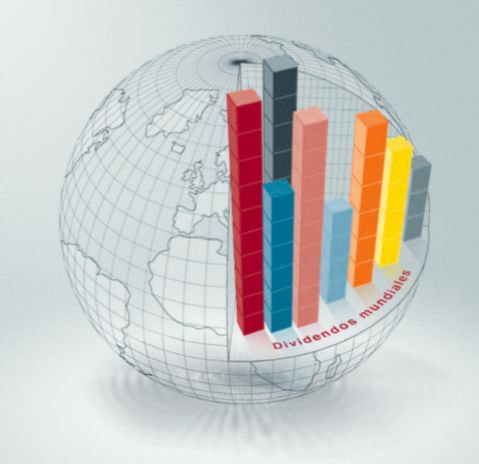Global dividend growth slowed in the second quarter, according to the latest Henderson Global Dividend Index. Underlying dividend growth, which strips out exchange rate movements and other lesser factors, was 1.2%. This is slower than the 3.1% underlying growth seen in the first quarter, partly reflecting Q2 seasonal patterns that give greater weight to slower growing parts of the world, and partly owing to a more muted performance from the US.

US payouts rose 3.1% on a headline basis to $101.7bn, equivalent to an underlying increase of 4.6%. This was the slowest rate of growth since 2013, reflecting subdued profit growth in the US, partly due to the impact of a strong dollar. The slowdown in the US began late last year but should be considered a normalisation to more sustainable levels of dividend growth after several quarters of double digit increases.
Income investors turn their attention to Europe in the second quarter. Two-thirds of the region’s dividends are paid in Q2, making it comfortably the largest contributor to the global total. European dividends (excluding the UK) rose 1.1% year on year in headline terms*, but on an underlying basis were an encouraging 4.1% higher. European dividends of $140.2bn made up two-fifths of the global second-quarter total. They were 1.1% higher than Q2 2015 on a headline basis. Underlying growth was an impressive 4.1%, once lower special dividends, particularly in France and Denmark, as well as other lesser factors were taken into account.

The Netherlands and France enjoyed the second and third fastest growth rate in the world, while German growth was hit by big cuts from Volkswagen and Deutsche Bank; Austria, Spain and Belgium also lagged behind.
In Japan, headline growth was 28.8%, with payouts totalling $30.8bn. Two thirds of this increase was down to the currency, with positive index changes accounting for the rest. In underlying terms, therefore, dividends were 0.8% lower, as company earnings were depressed by the strong yen, and as economic confidence in Japan weakened.
It was a challenging quarter for emerging markets. Dividends fell over a quarter on a headline basis to $22.9bn, as weaker currencies and index changes took their toll. Adjusting for these factors, payouts fell 18.8% in underlying terms, with a large number of countries, including the big four BRICs, seeing underlying declines.
The second half of the year is likely to be weaker than the first, partly because seasonal patterns means the emphasis shifts slightly towards those parts of the world where dividends are growing more slowly, like emerging markets, Australia, and the UK. Owing to the changes in the latest quarter, the Henderson’s team has reduced their forecast for the full year to $1.16 trillion, down from $1.18 trillion. This is equivalent to a headline expansion of 1.1%, or 1.4% on an underlying basis.
“We can see how more muted profit expansion, partly owing to stronger currencies, has slowed dividend growth in Japan and the US. In emerging markets, payout cuts have been greater than we expected so far this year as well. Europe remains broadly positive, in line with our expectations. The weak spots we have seen have been company-driven, or owing to specific sector trends like the impact of lower commodity prices, rather than related to wider economic difficulties. The slowdown in the US began late last year but should be considered a normalisation to more sustainable levels of dividend growth after several quarters of double digit increases.” Said Alex Crooke, Head of Global Equity Income.

Since the UK’s decision to leave the EU at the end of June, the pound has fallen further on the foreign exchange markets, extending a descent that began in the months running up to the referendum. However, a number of large international UK companies pay their dividends in dollars, so, according to Crooke, the impact will be less severe than the pound’s devaluation might suggest. In addition, the UK only accounts for around only 10% of global dividends so the effect on the global total is likely to be relatively small.



 By Fórmate a Fondo
By Fórmate a Fondo